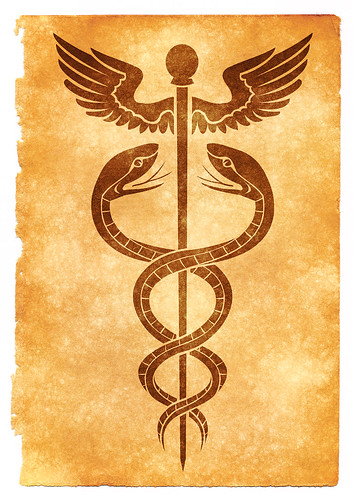 |
| Photo Credit: Nicolas Raymond on Flickr.com |
“Lighten up, everyone!” That’s the message of this
Fourth Sunday in Lent, known in many parts of the Anglican Communion as
‘Mothering Sunday’, the original ‘Mothers’ Day’. It takes its title from
Galatians 4:26 which was the original epistle for this day in the Book of
Common Prayer. The day was seen as a break from the rigours of the Lenten fast.
Apprentices and domestic servants were given the day off to go and visit their
mothers, picking flowers from the roadside as they went; and mothers made
simnel cakes to mark the occasion. It was also a day when parishes organized
pilgrimages to cathedrals, the ‘mother churches’ of their dioceses. It has also
been called ‘Laetare’ or ‘Rejoice Sunday’ from the traditional introit of the
day; ‘Refreshment Sunday’ in honour of the relaxation of Lenten solemnity; or
‘Rose Sunday’ (because of the substitution of rose-coloured vestments and
hangings for the sombre purple of the rest of the season. North American
‘Mothers’ Day’, celebrated on the second Sunday in May, was originally a peace
festival, designed to commemorate the horrors of the American Civil War and to
say “Never again” to such violence. It has, of course, become highly
commercialized, to the dismay of its original founders.
Regardless of origins, here we are – and the readings
for the day still give us reason to ‘lighten up’. The readings begin with the
story of Israel’s rebellion against Moses, followed by a plague of poisonous
serpents. The cure for this was to erect a bronze serpent on a pole, familiar
to us as a symbol of the medical profession. It reminds us how healing often begins
when we confront our fears and are able to diagnose the nature of our ills. John
the gospel-writer picks up this theme when he has Jesus comparing himself with
Moses’ bronze serpent. The crucified Messiah is a scandal to those who cannot
bear the light of the gospel; but Jesus is indeed the one who has come to
lighten our darkness. The third collect at Evensong also reminds us of this
theme with these simple, but profound words: “Lighten our darkness, we beseech
thee, O Lord; and by thy great mercy defend us from all perils and dangers of
this night; for the love of thy only Son, our Saviour Jesus Christ.”
The Letter to the Ephesians continues this theme,
pointing out how the grace of God has saved us from ourselves, and enabled us
to share in the fullness of life made possible by Jesus’ becoming one of us,
dying for us, and incorporating us in his resurrection. The psalm today reinforces
all this in a song of thanksgiving for God’s unceasing goodness and enduring
love.
One of life’s great paradoxes is that, when we think
we’re enlightened, we’re not – when we think we’ve arrived, it’s time to go
back to square one. This is the basic lesson taught by all the great spiritual
traditions. The era we call ‘The Enlightenment’ reduced all truth to what we
can know by reason; and what we call religious fundamentalism is a result of
our allowing rationalism to set the terms of engagement. The self-styled ‘new
atheists’ of a few years ago dismissed all religion as superstition, though
they had little or no knowledge of the depth and complexity of religious
traditions, and were not even up-to-date with contemporary science. Today,
however, the languages of science and mysticism have become familiar to each
other, for each embraces mystery and paradox as keys to true enlightenment.
Today we are moving out of a culture of either/or thinking into a culture of
both/and – out of a climate of divide and rule, into an exciting awareness of
our oneness. This may not seem to be the case, given the state of global
politics these days, but the reality is that we’re beginning to see the
consequences of our old separatist thinking. We’re beginning to rediscover both
our oneness and our interdependence.
The great Jewish philosopher Martin Buber noted that
we basically have two kinds of relationships – ‘I-Thou’ and ‘I-it’. In the
first, we see people and things in their wholeness. In the second, we treat
them as objects for our own use and discard. Increasingly, we’re seeing the
importance of contemplation and appreciation – but the catch is that we have to
do something about our frantic busyness; we have to ‘slow down and live’.
Mothering Sunday is perhaps above all else an
appreciation of our ‘womb-ness’, our connectedness. In a symbolic return to the
womb we rediscover our fundamental oneness, and our capacity for compassion. In
confronting our fears of ‘the other’ we emerge from darkness into light, and
see ourselves in new ways. So let’s indeed ‘lighten up’ and rejoice – for, as
John put it at the very beginning of his gospel, “the light has shined in the
darkness, and the darkness could not overcome it.” For such good news, thanks
be to God! And even though it's Lent: Alleluia! Amen!

No comments:
Post a Comment